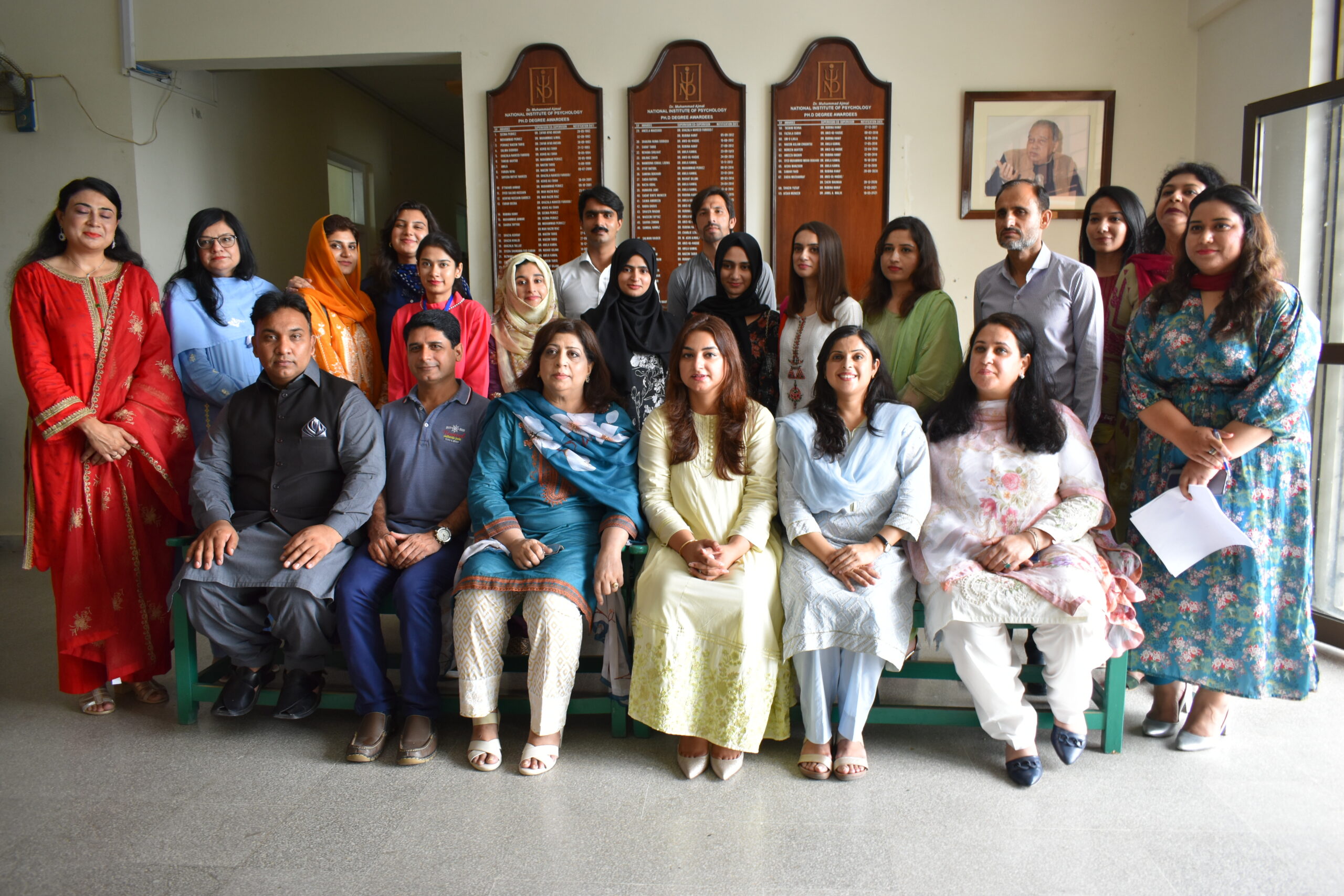National Institute of Psychology, Quaid-i-Azam University Hosts 9th International Conference
Islamabad

The inauguration ceremony of the One-Day International Virtual Conference, organized by the National Institute of Psychology, Center of Excellence, Quaid-i-Azam University, Islamabad was held on 23rd July 2022 titled “Trauma, Abuse, & Violence: Thriving for A World Without Torture” Conference as supported by national and international collaborators which included Vancouver Association for Survivors of Torture (VAST) and Voice Against Torture, (VAT) from Canada; and School of Human Rights (SHR) and Roots Pakistan were the national collaborators for this event.
Professor Dr. Rubina Hanif (Director & Conference Chief Organizer) and Dr. Saira Khan (Conference Organizer) welcomed worthy chief guests Dr. Muhammad Ali (Vice Chancellor, Quaid-i-Azam University), Prof. Dr. Muhammad Idrees (Dean Faculty of Social Sciences, Quaid-i-Azam University), speakers and the audience in their opening remarks.
Both chief guests highlighted the importance of the issue in times when violence is increasing globally and acknowledged the institute for its commitment to coming up with practical solutions on a much-needed theme. Four keynote addresses were presented during the inauguration ceremony by national and international speakers. Frank Cohn (Vancouver Association for Survivors of Torture, VAST) provided an overview of global and local implementations of anti-torture movements. Dr. Asir Ajmal (Dean & Professor of Psychology at GIFT University) highlighted the need of preventing torture in police settings.
Prof. Dr. Lawrence H. Gerstein (Center for Peace & Conflict Studies, Ball State University, USA) and Dr. Aashna Banerjee (Center for Peace & Conflict Studies, Ball State University, USA) articulated their narratives regarding prevention programs against violence in university settings. Dr. Wajid Pirzada (CEO of Roots Pakistan) emphasized the need for social protection in case of elderly abuse. All of the collaborators ensured policy-making on basis of the empirical evidence presented in the conference.
